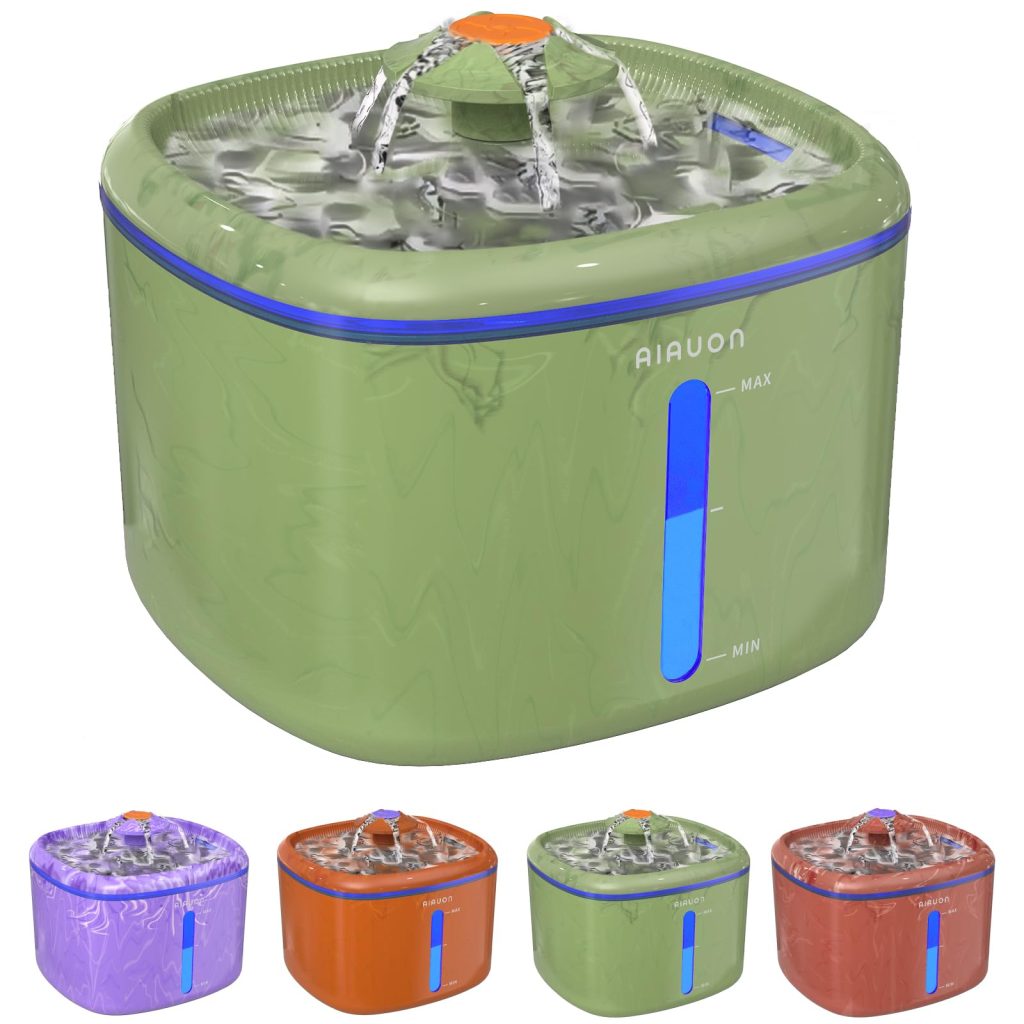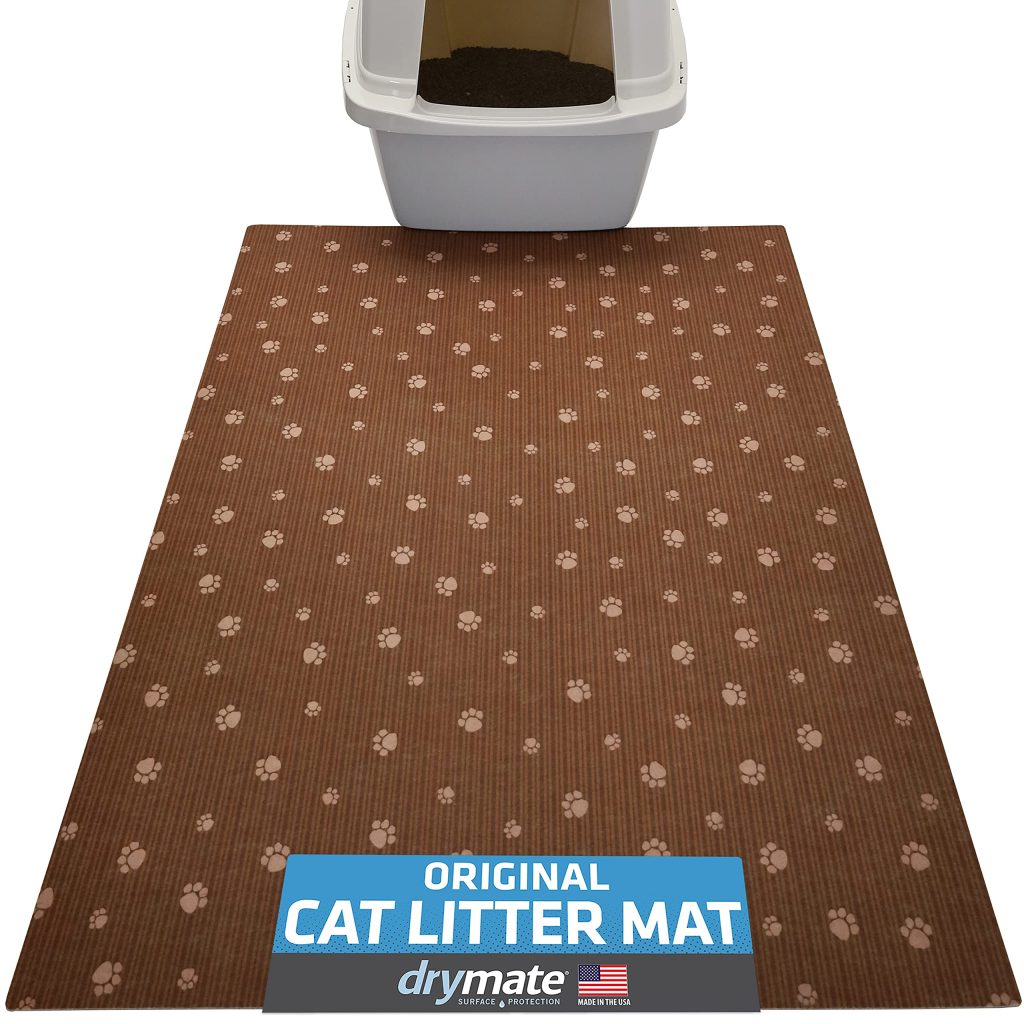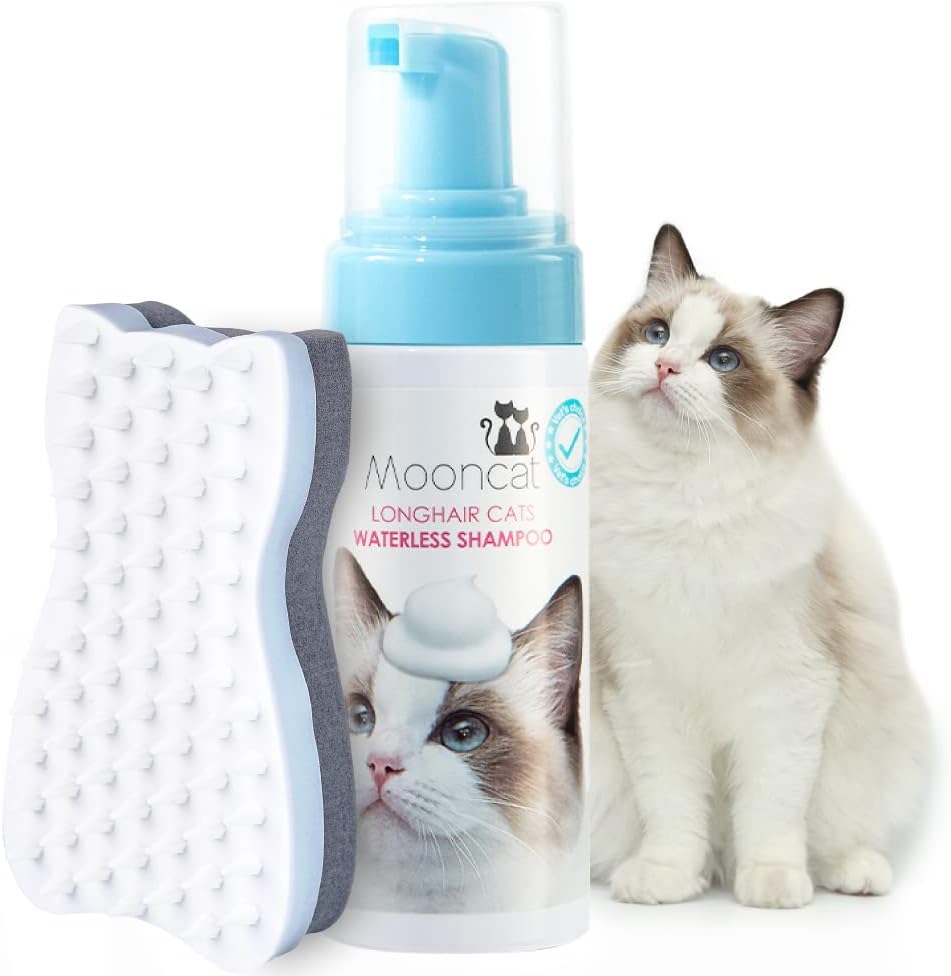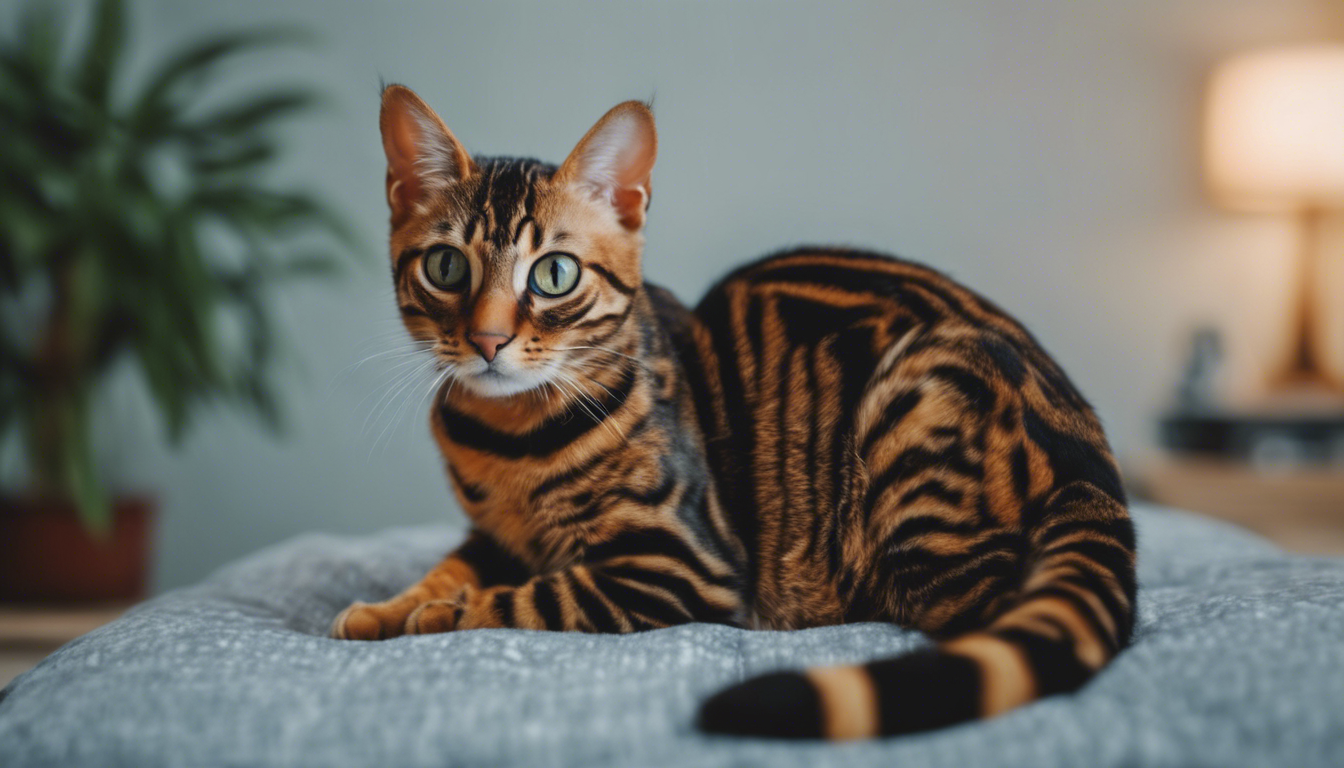
Origins and history of the Toyger breed
The Toyger is a breed that might tickle the fancy of any cat enthusiast looking for a miniature tiger to share their living room with. This majestic breed has its roots steeped in both intrigue and a passionate quest for feline beauty. It was the 1980s when the seeds of the Toyger were planted. A breeder named Judy Sugden noticed a striking marking in one of her domestic tabby cats—a pair of two spots of fur on the temple, which resembled the circular pattern often seen in the tiger’s head. This incidental discovery sparked a visionary project: to create a domestic cat that bore a remarkable resemblance to the wild tiger.
With the ambitious goal to mimic the tiger’s striking appearance, Sugden began the meticulous process of breeding. She welcomed a street cat from Kashmir, India, which flaunted the desired bold stripes, and later, a Bengal cat, itself a hybrid of the Asian Leopard Cat and domestic felines, that brought in the necessary genetic diversity and the coat patterns she aimed to reproduce. Through selective breeding, Judy and other dedicated breeders worked to accentuate the muscular build, the dramatic black stripes, and the fiery orange coat reminiscent of the toyger’s larger and wilder doppelganger.
It wasn’t an overnight success, but years of devoted cross-breeding eventually led to the birth of the breed we now know as the Toyger. This breed might be a testament to human imagination and persistence, as it is not one crafted by nature but rather painted by human dreams of domestic tigers. In 2007, the efforts of these breeders were formally recognized when The International Cat Association (TICA) gave the Toyger full recognition as a breed, flattering feline enthusiasts with this striking tabby-marked companion. It’s a fascinating tale of breeding prowess that brought the jungle’s grandeur into the humble abode of cat lovers.
Gazing at a Toyger with its tiger-like persona, what’s truly captivating is not just what we see but also knowing the journey behind its creation. It’s much more than an ode to the tiger; it’s an admiration of the artistry and passion that cat breeders bring to the world of pets. They’ve managed to give those dreaming of sharing their couch with a wild tiger, a miniature, gentle, and purring version — a Toyger, that is as much a work of art as a loveable, living creature.
Physical characteristics of Toyger cats
The appeal of the Toyger rests heavily on its mesmerizing physical attributes, which are a testament to the breed’s name—a toy-sized tiger that one can cuddle and coo over without fearing an untimely demise. Let’s delve into the physical marvels that define this breed. When you first lay eyes on a Toyger, the most striking feature is, without a doubt, its coat. Resplendent with dark, bold stripes lavishly overlaying a rich orange background, their fur truly epitomizes the wild beauty of a jungle tiger. The stripes run all along their body, wrapping around the legs and extending onto the tail, urging one to savor the meticulous artistry of nature, albeit facilitated by human hands.
The Toyger is a cat of medium size, robust and well-muscled, reflecting a controlled power and agility reminiscent of their larger and wild counterparts. This muscular build is followed by a high, rounded forehead and circular, small ears, which enhance their tiger-like appearance. Their eyes are round and wide, often described as glimmering jewels, that can come in various shades but tend to favor a stunning gold or blue, further amplifying the feral illusion.
One cannot ignore the intricacies that went into perfecting the enchanting facial patterns. A particular focus was placed on the distinctive markings around the eyes, which boast a ‘mascara’ lining that extends and fades into the whitened areas, just as in the wild tigers. The nose is broad and long, with a strong chin that complements their powerful jawline, rounding off a face that one could swear holds the wisdom of an ancient jungle.
But the Toyger is not all about the delightful mimicry of a tiger’s aesthetics. Their bodies are designed for feline grace and control. They have an athletic and elongated body structure, with high shoulders and a rounded abdomen—a hallmark of a predator in repose. When they move, they exhibit a confident and fluid gait, conjuring images of a tiger stealthily navigating through underbrush, which is comically juxtaposed with the usual target being a fluttering curtain or a rolling toy.
Their paws are large, powerful, and round, providing the stability needed for a hypothetical hunt—or, more likely, for dashing across the living room in high spirits. The tale of the Toyger would be incomplete without the commendation of their remarkable tail. Long and low-set, it often features a broken or even a braided pattern, which adds to the overall exoticism and appeal of these adorable felines.
However, their beauty is not without a price, as responsible breeding and care is important. Prospective and current owners should be mindful that maintaining such fine fur requires regular grooming. Brushing once or twice a week can help manage shedding and maintain the coat’s lustrous appearance. Additionally, their proclivity for muscle tone calls for an environment that encourages activity; cat trees, interactive toys, and regular playtime are a must to keep these tiger-like treasures in tip-top shape.
Dietary habits also play a significant role in their care regime. Toygers can do well on a diet of high-quality cat food, but given their athletic build, the nutrition they receive should be balanced and rich in proteins to maintain their muscular physique. Keeping an eye on their food intake is important as well since their hearty build can be prone to weight gain if not monitored.
Wrap your mind around this bundle of striped splendor, and recognize the Toyger for what it is: a marvel of feline design, a happy accident turned purposeful creation; a creature deserving of not only admiration for its beguiling tiger-like traits but also mindful stewardship to keep it thriving.
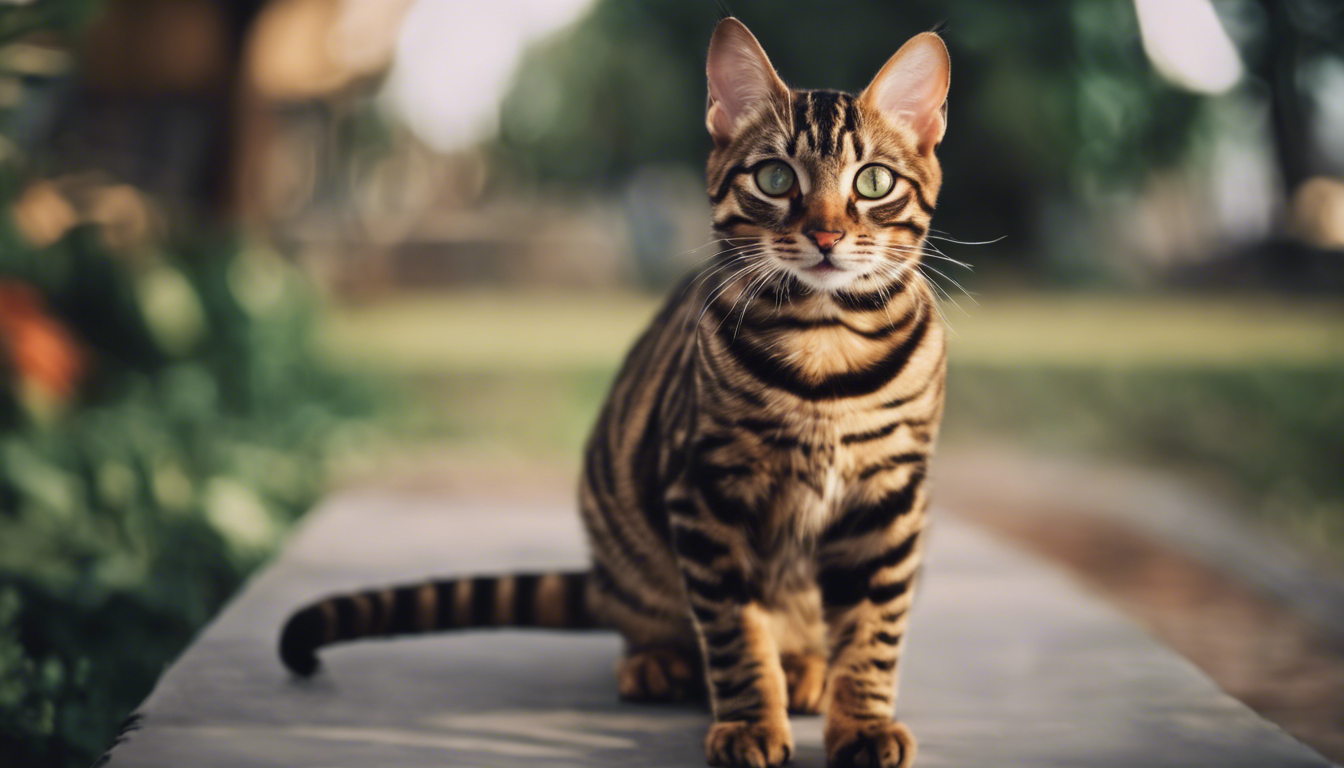
Personality and behavior traits
Meeting a Toyger is like encountering a housecat with a zest for life that belies its composed exterior. These spectacular creatures are not just about looks; they bring with them a personality that could easily make them the heart of any household. Energetic and playful, Toygers have a kittenish spirit that endures deep into their adult years. They adore interactive play, making them exceptional companions for families—and singletons—who enjoy engaging their pets in games and mental challenges.
But it’s not all rough and tumble with these striped beauties. Toygers also have a softer, affectionate side. They form strong bonds with their human companions and often seek out cuddles and attention. Expect these little tiger replicas to be a regular presence on your lap or snuggled up beside you in bed. They tend to be quite sociable and can adapt to a variety of households, whether it is a bustling family environment or a quieter, single-person home. Their adaptability and sociable nature make them excellent companions for other pets too. If properly introduced, Toygers can even get along famously with resident dogs or other cats.
Their intelligence is noteworthy, and this can be a double-edged sword. On one hand, a Toyger’s smarts make them trainable cats—you might find success teaching them tricks or even walking them on a leash with proper guidance. However, their cleverness also means they can become bored if not provided with enough stimulation. It’s important to offer a variety of toys and interaction, or they may resort to creating their own entertainment, which is not always ideal for the state of your home décor.
Toygers are usually robust, but as responsible pet parents, it’s crucial to be aware of the specific healthcare requirements that come with the breed. Regular veterinary check-ups are a given, as they are with any pet, to ensure they stay in optimum health. It’s also wise to educate oneself about any breed-specific health issues, although Toygers are generally healthy. Regular vaccinations, parasite control, and dental care are part of essential routine care to ward off common feline ailments.
In terms of grooming, while their coat doesn’t require the maintenance of a Persian or a Maine Coon, they do shed and will benefit from regular brushing. This not only helps to keep their fur in immaculate condition, resembling their wild cousins, but also strengthens the bond between you and your pet, as Toygers tend to be quite fond of the attention grooming entails.
When it comes to exercise, a Toyger’s athletic build demands physical activity. These cats relish the opportunity to jump, climb, and stalk. Ensuring they have access to climbing trees, safe outdoor enclosures, or even secured balconies can go a long way in maintaining their physical and mental health. Remember, a tired Toyger is a happy Toyger—and far less likely to climb your curtains!
With the right balance of play, love, and care, you can ensure your Toyger remains not just a stunning semblance of a jungle cat, but a content, sociable, and affectionate member of your family. They’re not just a joy to behold with their tiger-like stripes but also a joy to live with, for their compelling combination of energy, intelligence, and tenderness.
Care and health considerations for Toygers
Caring for a Toyger, like with any pet, requires a commitment to their well-being, encompassing diet, exercise, and mental stimulation to keep them at their happiest and healthiest. Here are some key aspects to consider:
- Keep your Toyger’s vaccines up to date and schedule annual check-ups with your vet. Even though they are a generally healthy breed, staying ahead of potential health issues very important.
- Ensure your Toyger is regularly treated for parasites, including fleas, ticks, and worms. Consult with your vet for the best prevention strategies.
- Good dental hygiene can ward off future problems, so brush their teeth regularly and provide dental snacks that promote oral health.
As Toygers are an active and playful breed, they thrive on exercise and mental stimulation. Without it, they can develop unwanted behaviors. So, how do you cater to their needs?
- Engage your Toyger in interactive play sessions with toys that mimic prey, like feathers on strings or motorized mice, to keep them mentally stimulated and physically fit.
- Puzzle feeders, treat balls, and other feline enrichment toys can help keep their minds active, which is especially helpful when you are not home.
- Invest in sturdy cat trees and scratching posts. This will not only allow for vigorous exercise but will also protect your furniture from their sharp claws.
- With patience, many Toygers can be leash trained, allowing them to safely explore the outdoors under your watchful eye.
When it comes to grooming, Toygers are relatively low-maintenance, but they do shed. Brushing them a few times a week can help minimize hair around the house and reduce hairballs. Plus, Toygers generally enjoy the bonding experience of being brushed.
The proper diet is also paramount to maintaining a Toyger’s well-being. They require a balanced diet that’s rich in proteins to keep their muscles lean and strong. Keep an eye on portions to prevent obesity, which can sneak up in breeds with hearty appetites like the Toyger.
Remember, developing a routine around these care considerations will not only ensure your Toyger stays in tiptop condition but will also strengthen the bond between you. Providing them with the right care and attention will help you enjoy the dynamic and loving companionship of your Toyger for many years to come.
By understanding and catering to their unique needs, you’ll ensure that your exquisite Toyger remains not just a stunning household tiger in appearance but a cherished, lively, and healthy companion in your life.
